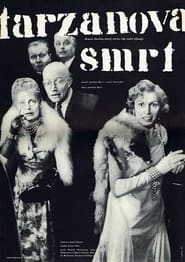detail profile ji c5 99 c3 ad kas c3 adk
Peran Yang Di Mainkan Jiří Kasík
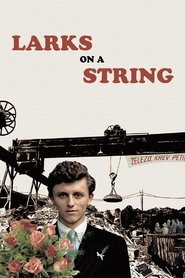 In postWWII Communist Czechoslovakia several characters...
In postWWII Communist Czechoslovakia several characters...Larks on a String 1990
In post-WWII Communist Czechoslovakia, several characters considered bourgeois are sentenced to work in a junkyard for rehabilitation. Among them is a young man who pines for a female convict.
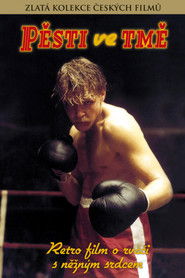 The year is 1936 the nervous atmosphere...
The year is 1936 the nervous atmosphere...Pěsti ve tmě 1987
The year is 1936, the nervous atmosphere of the Nazi threat penetrates into the sport. Upgrade boxe Vilda Jakub will compete with German Kurt Schaller. The Nazis decisions are used in order to win his master even the dirtiest means. Vilda inspect their game and focus on the preparation of environmental events. The story culminates in the victory of one of the two lovers, between which Vilda tense moments in the decision.
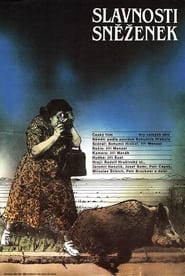 This movie is based on texts...
This movie is based on texts...The Snowdrop Festival 1984
This movie is based on texts of Bohumil Hrabal, world-known Czech prosaic. It's a story (in a form of a mosaic of short episodes and pictures) about the sadness and happiness of inhabitants of Kersko (Kersko is a small woody area full of cottages and roods). These people are both simple and sensitive, they have their own pleasures (e.g. Leli is a collector of cheap, but inutile things) and the greatest delight of all of them is a hunting. Crude poetics of amateur hunting is screened by dreamy pictures of this area. Menzel mixes sentimental lyricism and rough (but not vulgar!) humor and the outcome is the never-ending landscape of continuous life in the proximate nearness of nature. The performances of actors are brilliant. Both Rudolf Hrusinsky as a Franz and Jaromír Hanzlik as a Leli have nonrecurring charm bottomed on a pain and inebriation. Only the music is not perfect: Jiri Sust usually assembled his film music from his older works and in this movie there is many quotations.
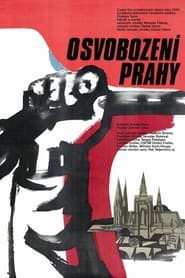 On 20th of April 1945 the Soviet...
On 20th of April 1945 the Soviet...The Liberation of Prague 1977
On 20th of April 1945 the Soviet army launches its attack on Berlin. The end has come for Nazi Germany and Hitler decides to commit suicide. In Prague K.H. Frank (Nazi Secretary of State and Chief of police in the Protectorate of Bohemia a Moravia) discusses with his commanders how to transform the city into an impregnable fortress, but the Praguers do not intend to wait any longer. From the early hours of 4th of May people start assembling in the streets and tearing down German signs. On the next day, the 5th of May, the uprising begins.
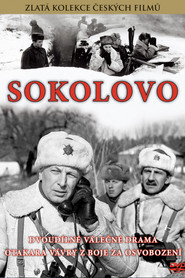 The plot begins in the Soviet...
The plot begins in the Soviet...Sokolovo 1975
The plot begins in the Soviet Union showing first efforts to establish the Czechoslovak legion in 1942. The film also shows the assassination of Heydrich and the subsequent annihilation of Lidice. The main topis of the film is battles with German troops for Sokolovo.
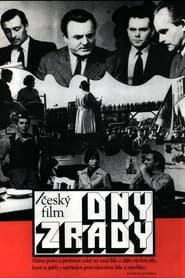 This feature film based on the...
This feature film based on the...Days of Betrayal 1973
This feature film based on the events of 1938 is a chronicle of the futile efforts of the Czechoslovak president Edvard Benes (Jirí Pleskot), politicians and ordinary citizens, to save the independence and the territorial integrity of the state from the advance of Hitler's Germany. On the 29th of March 1938 the leader of the Sudeten Germans Henlein (Werner Ehrlicher) has a meeting with Hitler (Gunnar Möller). Hitler orders him to intensify pressure on the Czechoslovak government. On the 24th of April in Carlsbad, the Sudetendeutsche Partei (Sudeten German Party) decides upon eight demands that are unacceptable to the Czechoslovak President, since they would ultimately lead to the break-up of the Republic. Benes still shows a certain willingness to negotiate, and Henlein resents this. The Germans are determined to make further negotiations impossible through incidents and violence.
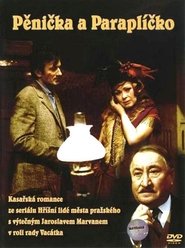 In the morning twilight of Prague...
In the morning twilight of Prague...Burglar and Umbrella 1971
In the morning twilight of Prague, the dead body of the safe-breaker Toufar is found floating on the river Vltava with a knife in his back. Police inspectors visit Toufar's lover, the prostitute Anna Kulatá (Jirina Bohdalová), nicknamed Umbrella, and it is apparent that the moment before she opened the door of her flat, someone fled through the window. Umbrella is summoned for examination to the head of the criminal police - Police Councilman Vacátko Jaroslav Marvan, but although shocked by the photograph of the dead man, she does not confess to anything. Before Toufar, Umbrella lived with the safe-breaker Penicka (Radoslav Brzobohatý), who loved her very much and made her quit her street trade. But when he was sentenced to three years' imprisonment, Umbrella began to live with the brute Toufar, who chased her to street again. In the case of the murder, Penicka is therefore the prime suspect.
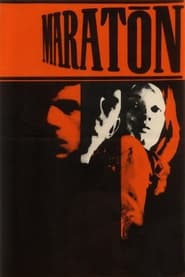 It is 5 May 1945 and the uprising...
It is 5 May 1945 and the uprising...Maratón 1968
It is 5 May 1945 and the uprising against the hated German occupiers has broken out in Prague. The Czech guards open the gate of the Pankrác prison to allow the prisoners to escape en masse. Many of them are shot dead by the German guards but young Ruda (Jaromír Hanzlík) manages to run away. He is taken care of by one of the Prague fighters, concierge Kytka. Kytka hides him in the flat of the house's owner where only the young maid Karla (Jana Brejchová) is left, ordering her to take care of Ruda.
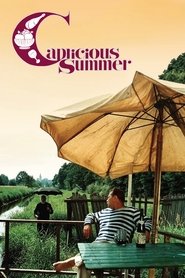 Middleaged Antonin and his friends the...
Middleaged Antonin and his friends the...Capricious Summer 1968
Middle-aged Antonin and his friends, the major, now retired, and the canon, are in the river, swimming and philosophizing. Then it starts to rain. It just seems to be that sort of summer. Antonin runs the swimming bath with his portly wife Katherine... A man appears with his horse-drawn caravan. He lays a striped pole across the river and walks over. With a handstand and a magic trick, Ernie the Conjuror invites everyone to that evening's performance... Ernie is a tightrope walker of only modest skill, but with a slim and beautiful assistant, Anna. Antonin speaks to her. The two spend the night in the change room by the river, Antonin massaging her feet all night long. Katherine decides to move into the caravan with Ernie. But now the major and even the canon sense Anna's attractiveness...
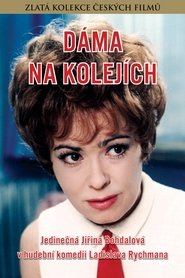 Tram driver Marie has far too...
Tram driver Marie has far too...Lady on the Tracks 1966
Tram driver Marie has far too much to do after her shift is over. But she likes to do it all since she loves her husband Václav sincerely. One day she spots him on the Lesser Town Square in Prague, kissing an attractive blonde good-bye. It seems to Marie that her small comfortable world has collapsed and she walks out of the tram in tears. But her sadness does not last long. She wipes off the tears and begins to act. She withdraws all the money from their savings books and buys off all the latest models from the Fashion Works. The visit to the beauty salon then completes her transformation into a lady.

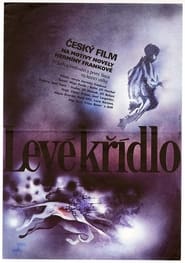
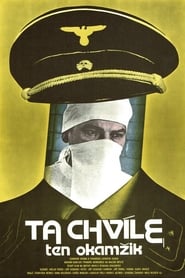 Autumn 1944 A doctor is accused in...
Autumn 1944 A doctor is accused in...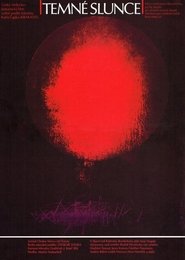 A remake of Vvras 1948 atomic age...
A remake of Vvras 1948 atomic age...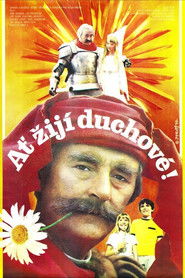 A trespassing gang of boys encounter...
A trespassing gang of boys encounter...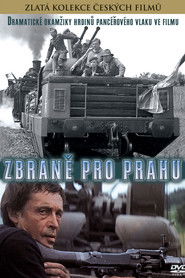
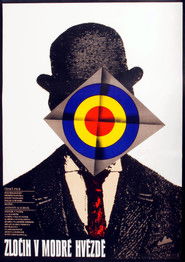
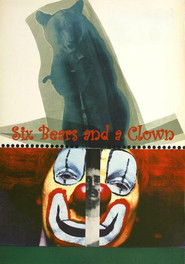 The owner of a circus decides...
The owner of a circus decides...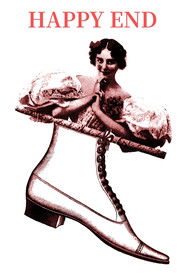 A dark comedy about a murder...
A dark comedy about a murder...